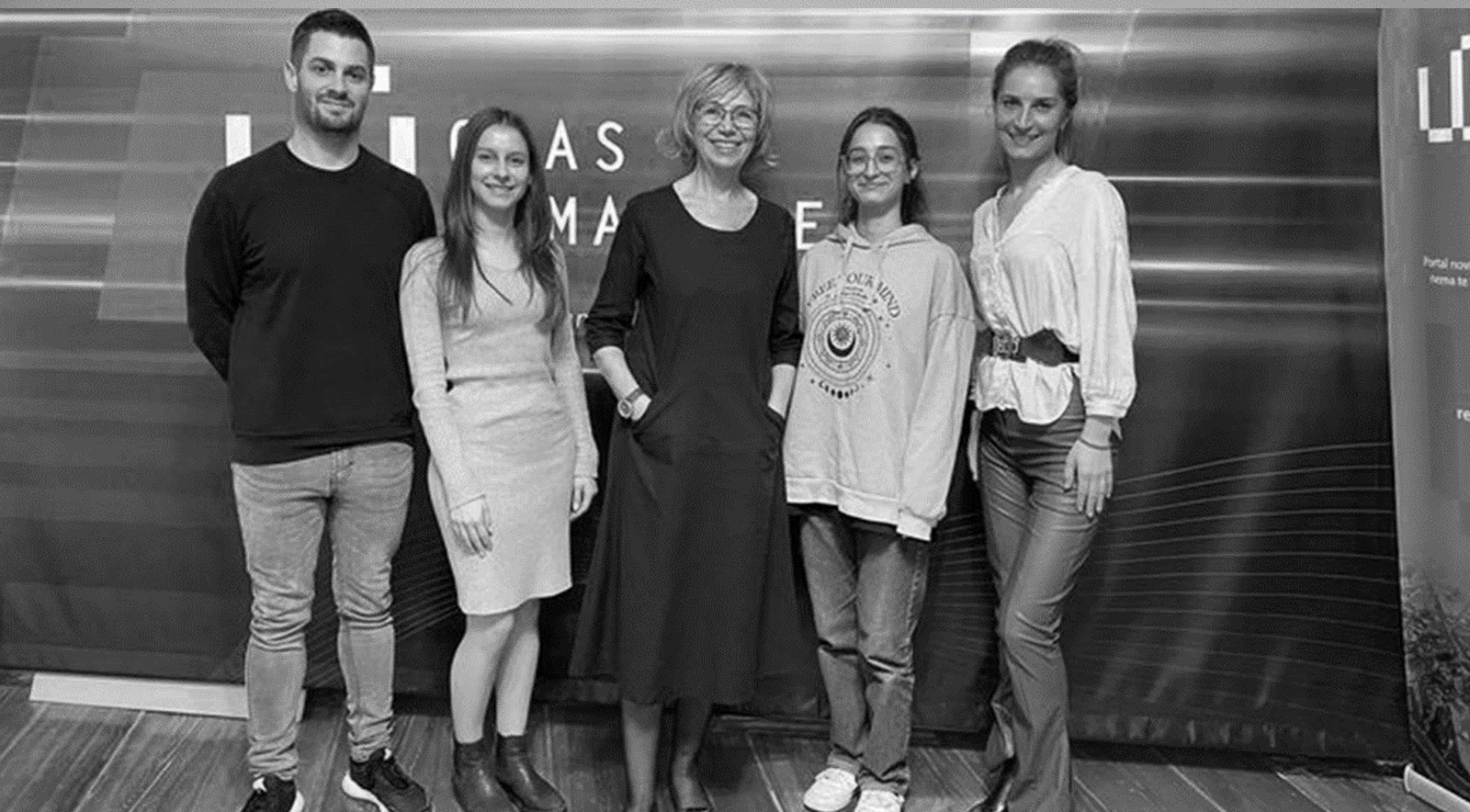
Throughout her thirty-year career as a journalist in the city of Kragujevac, in central Serbia, Jovanka Nikolić had witnessed the negative impact of unregulated privatisation on local media. That’s why she decided to establish Glas Šumadije in 2018 to maintain professional independence and integrity.
“Our first office was five square metres,” she recalls. “We had one chair, one table, one laptop, and a sign saying “Glas Šumadije” on the door.”
Kragujevac residents soon started knocking at their door, asking to cover this or that topic. “People know and trust us, and this has always influenced the direction of our work,” says Jovanka.
Established media outlets from the Western Balkans such as BIRN and Južne Vesti also got in touch to cooperate, helping Glas Šumadije gain a bigger following.
EED’s support allowed Glas Šumadije to hire a team of young, university-educated, majority female journalists, to further develop their YouTube channel. As they started livestreaming their content, they were able to increase their viewership by a third without using ads. Today, there are 500,000 daily unique visitors on their website.
They have now upgraded to a 90 square metre office with the technical equipment needed to livestream content. They also regularly broadcast debates and discussions on relevant socio-political topics that are of interest for the local community.
A key feature of Glas Šumadije’s work is constant dialogue with the public. Thanks to Jovanka’s career and reputation as an independent journalist, and the media outlet’s rigorous fact-checking, they have gained the trust of the citizens, who view them as a force for positive change, even when it comes to small things:
“People in Kragujevac say that if you want the local authorities to repair something in your street, you just need to call Glas Šumadije,” says Jovanka.
According to her, citizens are interested in local problems, and that is where local media can play a role.
“The difference between national and local media is that journalists covering the latter are constantly in touch with citizens, they can run into us in the street. They send us pictures and information on different problems. They see us as activists, and they see themselves as activists as well.”
During the December 2023 parliamentary election, Glas Šumadije also covered the local elections in Kragujevac, focusing on investigating falsely registered voters, a common issue in the country, through requesting monthly reports on voters’ registration from the local police. They also organised TV shows interviewing candidates from all political parties, livestreamed press conferences from both the government and opposition parties and reported from the polling stations on voting day.
Glas Sumadije also reports on positive local news. For instance, as a way of countering the increasing anti-vaccine sentiment, they had a feature on how 100 percent of children in the region are now vaccinated against whooping cough – which is unfortunately not the case in all parts of the country.
They report on the successes of young people in the city, from a theatre festival organised by a youth drama group to international sporting achievements. “Whenever something negative involving local youth happens, every media reports it. But the same doesn’t happen for positive events,” she says.
This commitment to serving the citizens can also mean going against the authorities. During the latest protests in Belgrade a student from Kragujevac was arrested, and the mayor of Kragujevac sent out an official communication congratulating the authorities for arresting the ‘hooligans’. The Glas Šumadije team decided to boycott the mayor's annual New Year’s reception in protest.
“We believe he should have helped the student and his mother - who had no idea where her son was - instead of making inflammatory announcements,” explains Jovanka.
When talking about the future of Glas Šumadije, Jovanka envisions passing the torch to a new generation of young journalists: “Throughout my career I have seen media outlets fail because older members of the staff were not ready to give up their power. I really encourage young people to play a bigger role, as they are the ones who know the latest communications technologies and can better adapt to the current times.”
This article reflects the views of the grantees featured and does not necessarily represent the official opinion of the EED.